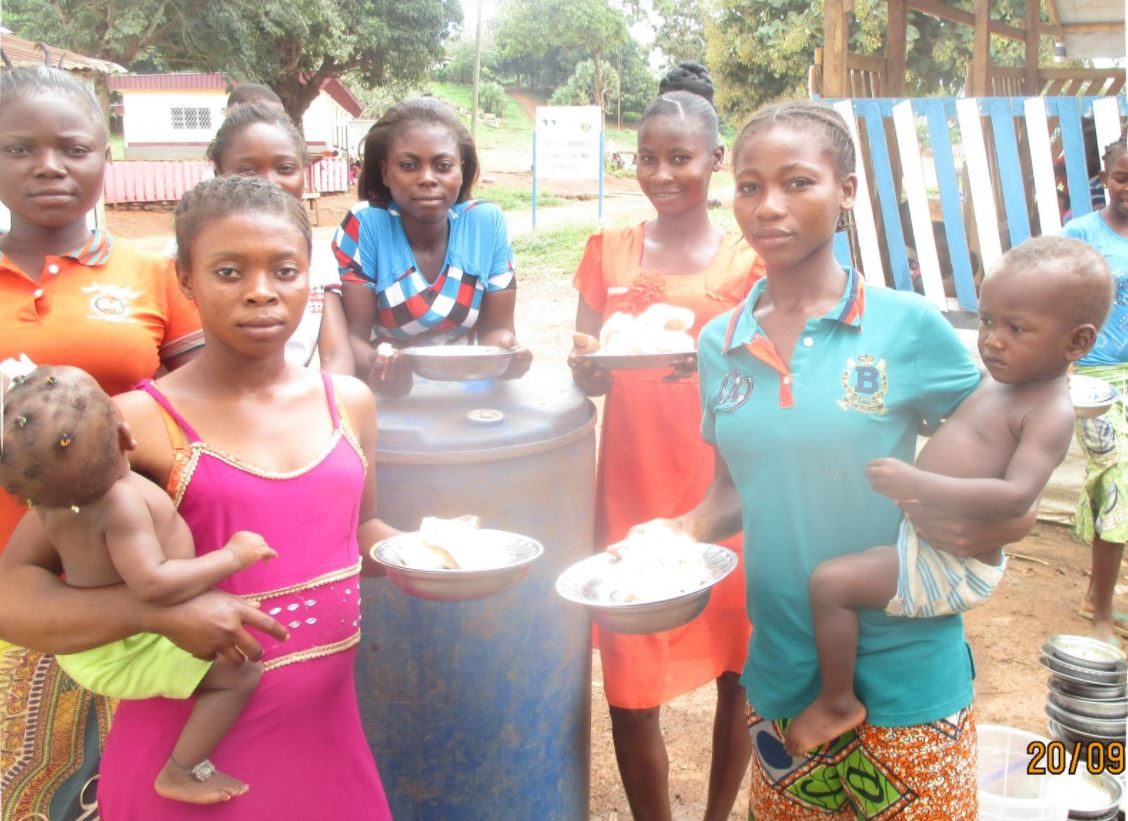Central African Republic: Back to school after two years of conflict
7 May 2019Nelly (17) was living with her family in the Boda district in the Central African Republic (CAR). When the civil war broke out in 2013, resources became more difficult to come by. Like many other children her age, she had to drop out of school, in her case to sell peanuts and oranges at the local market to help her family make ends meet. When her father became a victim of the war and their family house was burned down, she could no longer continue selling her products at the market. For her to be able to pick up her activities at the market, she was married off to a member of the Anti-Balaka faction who promised her the means to be able to continue selling her products. However, things did not really go as planned, she became pregnant and had a baby at age 17. Her husband, who also used her to spy on the other people in the village to see who among them still had access to money, abandoned her to flee to the mines the moment the power started shifting in her village. When Nelly enrolled in Plan International’s project, she was having difficulty feeding her baby and herself. Thanks to the different facilities the Plan International project provides, such as daycare, young mothers as Nelly are able to find their way back to education.

Participating at the training to start your own restaurant.
Since June 2016, Plan International with the support of the European Commission (the Directorate-General for European Civil Protection and Humanitarian Aid Operations) is active in the sub-district of Boda to promote the right to education and protection in a safe cohesive environment for marginalised children affected by conflict. The civil war involving different political-religious groups brought about local migration flows and separated many children from their parents, making them the most marginalised and at risk of exploitation, trafficking and abuse. During the civil war, children were involved in armed groups or diamond mining, or like Nelly, married off and pregnant at an early age. Since the conflict started in 2013, more than half of the schools in the region were closed or damaged in such a way that each educational activity needed to be put to a halt. By the time the project took off, the majority of the children in the region missed out on at least two years of education.
Through this project, Plan International aims to provide peace and social cohesion while restoring education in the Boda sub-district. Upon arrival of the project back in 2016, the city was split into two zones separating the Muslims and non-Muslim by a demarcation called the “red line” and the majority of children experienced a direct violation of their rights, varying from no access to education to being enrolled in armed groups. The project aimed at restoring the infrastructures for the children in the city to resume their education. Additionally, the project organises different activities to raise awareness on the importance of early child development. Looking at the different age groups, the project intends to provide education and training and create a space for children of the different religious communities to come together. Early Childhood Care and Development (ECCD) centres were set-up for children aged 0-5 years. Twelve primary classrooms for children aged 6-13 years were built and teachers and school managers were trained to facilitate children’s different needs. For the adolescents, Plan International worked together with the Ministry of Education and Social Affairs to develop vocational and apprenticeship programmes, including courses in relation to SRHR, child protection and impact of children in army groups. Plan International is also working together with the most popular radio station in CAR, radio Ndekeluka, to engage the local population to promote social cohesion in communities, schools and media.
As a result of the project, parents in the city came to understand the importance of early childhood development. In 2018, 494 children were enrolled in different centres. More than 4.806 children now also have access to education and through one of its activities called “Child Parliament” inter-communal dialogue has been strengthened. Over 2.258 marginalised adolescents (from the different religious communities), children with disabilities and former children enrolled in armed groups were able to improve their life skills through alternative training.
In the meantime, Nelly received a certificate for having successfully attended a 3-month course in literacy. At the same time, she went to the youth centre for a class on basic skills and followed a training to start her own café/ restaurant, as she wants to open a big restaurant at the local market of Boda.

Categories: Education, Emergencies


